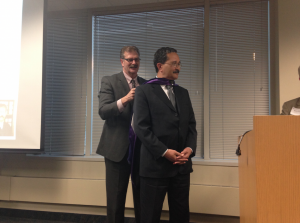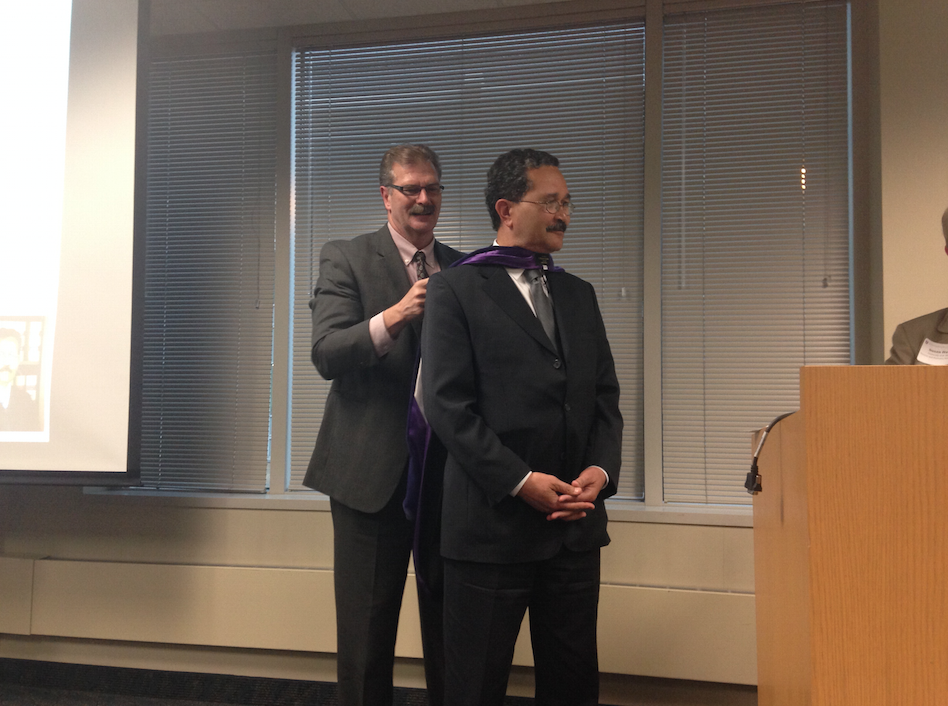U.S. District Judge and St. Thomas alumnus Judge William Haynes on Thursday addressed factors that contribute to social mobility and received an honorary doctorate.
Haynes, the keynote speaker at the 17th annual Judge Julian Parker Lecture Series, said education and a stable home life allows people from diverse communities to become socially mobile.

Haynes was born in Memphis where he later attended high school. His father worked two jobs to help send Haynes to private school, and his stepfather introduced him to philosophy and literature. The nuns who taught at his school suggested that he attend St. Thomas. Haynes, who now serves the middle district of Tennessee, said his education at St. Thomas helped prepare him to be successful and fight for social change.
“St. Thomas … enriched me and enriched the experiences of my family,” Haynes said. “St. Thomas was an important part of my journey and gave me an education for life.”
Though one of only seven African American students attending St. Thomas in the 1960s, Haynes said the university taught him much about diversity.
“I met students from all over the world,” Haynes said. “The more you got to talking to one another—as diverse as we were—we had a lot of things in common.”
Haynes has used his knowledge to promote a number of community and educational reforms, including student mediator programs—systems that allow elementary and high school students to apply positive peer pressure—and the use of neighborhood corporations—non-profit organizations that encourage community engagement.
Haynes’ lecture focused on the importance of education.
“If you’re going to be successful in society, you’ve got to have a good education,” Haynes said. “It will increase not only your opportunities, but the amount of income that you earn. Just to be able to compete in today’s economy, you’ve got to have a solid educational background.”
Mark Salisbury, dean of the College of Education, Leadership and Counselling, said the university chose Haynes as this year’s speaker because of his achievements and connection to St. Thomas.
“It was a very good way to bring a lot of inspiration and information to our audience and help broaden our understanding of how much we’ve done in diversity and how much there’s left to do,” Salisbury said.
Doctoral student Sabeena Mathayas said she appreciated the substance of the lecture.
“I think it was extremely eloquent, and I really feel it was an academic talk compared to the more, you know, free-flowing conversations we tend to have,” Mathayas said. “This was academic, it talks about policy, and that helps.”
St. Thomas graduate Rosella Collins-Pouch said she also enjoyed the speech.
“I think that speeches should always provide direction as to how things can change, give people understanding and knowledge about how to make a difference, and I think he (Haynes) provided that,” Collins-Pouch said.
Grace Pastoor can be reached at past6138@stthomas.edu.


Very well written piece. I’d like to see someone address social mobility for people who don’t have access to higher education.